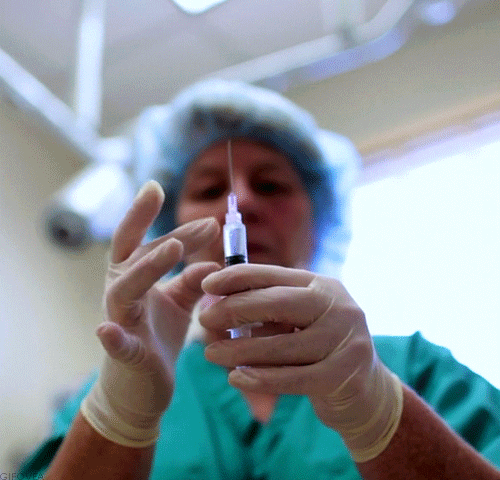He Died in Four Hours. The Hospital Bill Was $195,000
Why are hospital bills in America so high? How to negotiate a hospital bill after a loved one dies What happens if you die without insurance in the U.S.? How to get hospital financial assistance Can hospitals forgive medical debt?

$195,000 Hospital Bill After 4-Hour ER Visit: What It Costs to Die in America
hospital bill heart attack, hospital costs USA 2025, how much is a hospital stay in America, why are hospital bills so high, emergency room bill without insurance, U.S. healthcare cost story, $195k hospital bill Texas, cost of dying in America, uninsured medical bills USA, how to negotiate hospital bills, American healthcare crisis 2025, ER visit cost, medical debt after death, hospital overcharging, real hospital bill stories
By YEET Magazine Staff, YEET Magazine
Published October 27, 2025
He Died in Four Hours. The Hospital Bill Was $195,000
“They kept him alive for four hours. Then the bills came.” — U.S. family member describing medical debt after a loved one’s sudden death
When Mark Patterson collapsed from a heart attack in June, his family rushed him to a suburban hospital outside Dallas. Four hours later, he was gone.
His sister-in-law, Amy, thought the worst was behind them. The grief was heavy, but the family leaned on each other. Then, two weeks later, the envelopes started arriving.
One from the cardiologist: $3,800.
Another from the emergency doctors: $2,900.
Then radiology: $1,100.
Painful, but manageable.
Then came the hospital bill. $195,000.

The Shock of Dying Without Insurance
Mark had been between jobs. He let his health insurance lapse in April, thinking he’d renew it once his new contract kicked in. He never got the chance.
Without insurance, every minute in the hospital carried a price tag. “It’s like grief with a receipt,” Amy told YEET Magazine. “We were still planning his funeral, and the bills already looked like another tragedy.”
The hospital charged tens of thousands for emergency interventions — EKG monitoring, blood work, the crash cart, the intensive care room. “They did what they had to do medically,” Amy says, “but when you look at the itemized bill, it reads like a catalogue of pain.”
America’s Expensive Goodbye
The U.S. has the highest healthcare costs in the developed world. According to a 2024 Kaiser Family Foundation study, the average emergency hospitalization for a heart attack costs between $78,000 and $250,000 depending on location and treatment.
Even for those with insurance, out-of-pocket costs can exceed $15,000. For uninsured families like the Pattersons, it can mean financial ruin.
In Mark’s case, Amy and her family worked with the hospital’s billing department to negotiate. After weeks of calls and paperwork, they reduced the amount to $48,000 — still overwhelming, but less than a quarter of the original charge.
“Death Shouldn’t Be a Billable Event”
Medical debt remains the leading cause of bankruptcy in the U.S., affecting roughly 41% of adults, according to the Consumer Financial Protection Bureau. Even small medical emergencies can spiral into lifelong debt when insurance lapses or coverage gaps occur.
“Death shouldn’t be a billable event,” said Dr. Lisa Moreno, an emergency physician at Louisiana State University, speaking to YEET Magazine. “But for many Americans, that’s exactly what it is.”
Hospitals say they’re under pressure too — rising supply costs, staff shortages, and reduced reimbursements from insurance providers. But for families like Amy’s, that explanation doesn’t soften the blow.
The Hidden Cost of Dying in America
There’s a quiet cruelty to what happens after someone dies in a hospital. The calls, the collections notices, the coded jargon on invoices.
“I thought death certificates were the last document,” Amy says. “I didn’t know there would be hundreds more — all asking for money.”
The hospital’s financial assistance program eventually helped erase part of the balance, but only after months of negotiation and paperwork. “You have to know what to ask for,” Amy adds. “If you don’t push back, they assume you’ll just pay.”
What Families Can Do
Experts say families facing high hospital bills should:
- Request an itemized bill. Errors are common.
- Ask for financial assistance or charity care. Most nonprofit hospitals are required to offer it.
- Negotiate payment plans. Hospitals often reduce charges if paid promptly.
- Avoid credit cards. They make medical debt even more expensive.
- Get help. Organizations like Dollar For, RIP Medical Debt, and National Consumer Law Center assist families in lowering or eliminating bills.
A Broken System
Mark’s story isn’t rare. It’s American. A system built to save lives but not to protect the living from financial fallout.
Amy keeps a folder in her desk labeled “Mark.” Inside are his death certificate, the sympathy cards, and the original $195,000 hospital invoice. “Sometimes I take it out,” she says. “Just to remind myself what love and loss cost in this country.”
Related Posts
- Why are hospital bills in America so high?
- How to negotiate a hospital bill after a loved one dies
- What happens if you die without insurance in the U.S.?
- How to get hospital financial assistance
- Can hospitals forgive medical debt?
- What is charity care and how do you apply?
- Why are U.S. ER visits so expensive?
- How to check for errors on hospital bills
- What rights do you have with medical debt collectors?
- How to file a complaint about hospital overbilling
- Are nonprofit hospitals required to offer free care?
- What are the average costs of a heart attack in the U.S.?
- How to protect yourself from surprise medical bills
- Why does medical debt cause bankruptcy?
- How to dispute a hospital charge
- Can hospitals sue you for unpaid bills?
- What happens to hospital debt after death?
- How to set up a medical payment plan
- What is balance billing and why is it legal?
- How to find free or low-cost healthcare clinics near you
- Why does health insurance lapse so easily?
- How to get retroactive health coverage after an emergency
- Can Medicaid cover emergency bills retroactively?
- What’s the difference between for-profit and nonprofit hospitals?
- Why are U.S. healthcare prices not transparent?
- How to handle hospital collections agencies
- What are the most expensive procedures in U.S. hospitals?
- How to appeal a denied insurance claim
- Why does U.S. healthcare cost more than other countries?
- How to find a medical billing advocate
- What laws protect patients from overcharging?
- What percentage of Americans have medical debt?
- How to report hospital billing errors
- Can GoFundMe really help with medical bills?
- What’s the average ER visit cost in 2025?
- How to get hospital bills reduced
- Why are ambulance rides so expensive in the U.S.?
- How do hospitals calculate “facility fees”?
- What happens if you ignore medical bills?
- Can you negotiate after paying a hospital bill?
- What’s the No Surprises Act and how does it work?
- How to use patient rights to dispute charges
- Can medical debt affect your credit score?
- What’s the average heart attack treatment cost in each U.S. state?
- How do hospital billing departments set prices?
- What’s the future of healthcare reform in America?
- How can Congress reduce hospital costs?
- Why do some hospitals charge more than others?
- How to find help for grieving families with medical debt
- Can you refuse to pay unreasonable hospital bills?
